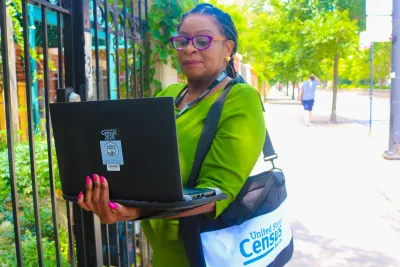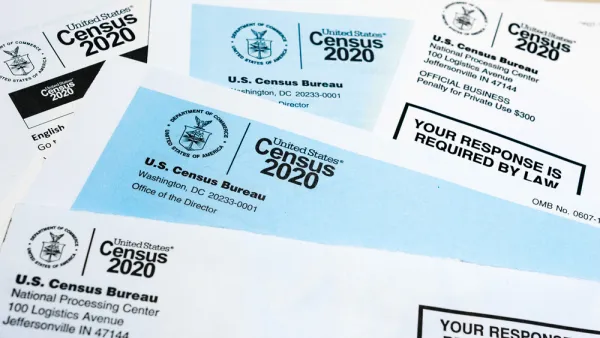Due to the challenges faced by data collectors during the pandemic, the Census Bureau will not be releasing 2020 ACS data in September as usual.

Each September, the U.S. Census Bureau releases the results of its annual American Community Survey (ACS). But, Mark Mather writes, due to the challenges posed by the COVID-19 pandemic in 2020, the Bureau has decided to forgo the standard data release and instead "release experimental estimates for a limited set of tables and geographic areas" in November.
"There were early warning signs that this was coming. In a presentation at our recent 2021 ACS Data Users Conference, Mark Asiala, an assistant division chief in charge of ACS statistical design, reported that between April and September 2020, the Census Bureau was forced to suspend many of its data collection operations, including in-person visits to homes that didn’t return survey questionnaires. He said the Census Bureau conducted one-third fewer interviews for the 2020 ACS, compared with the 2019 ACS."
The 2020 responses also experienced a significant level of "non-response bias," with respondents having "higher average incomes, education levels, and homeownership rates" on average than those who did not respond.
The lack of data deals a major blow to demographers who hoped to answer some essential questions about what happened to the U.S. population during the pandemic. "For states, metropolitan areas, congressional districts, and many large counties and cities, the 2020 ACS 1-year data could have provided our first comprehensive portrait of how American life changed during the pandemic."
"The good news is that 2021 ACS data should be released next year as planned. Because ACS data collection is ongoing, we will eventually be able to compare population and housing characteristics before, during, and after the pandemic."
FULL STORY: Why the 2020 American Community Survey Is Different and Why It Matters

National Parks Layoffs Will Cause Communities to Lose Billions
Thousands of essential park workers were laid off this week, just before the busy spring break season.

Retro-silient?: America’s First “Eco-burb,” The Woodlands Turns 50
A master-planned community north of Houston offers lessons on green infrastructure and resilient design, but falls short of its founder’s lofty affordability and walkability goals.

Delivering for America Plan Will Downgrade Mail Service in at Least 49.5 Percent of Zip Codes
Republican and Democrat lawmakers criticize the plan for its disproportionate negative impact on rural communities.

Test News Post 1
This is a summary

Test News Headline 46
Test for the image on the front page.

Balancing Bombs and Butterflies: How the National Guard Protects a Rare Species
The National Guard at Fort Indiantown Gap uses GIS technology and land management strategies to balance military training with conservation efforts, ensuring the survival of the rare eastern regal fritillary butterfly.
Urban Design for Planners 1: Software Tools
This six-course series explores essential urban design concepts using open source software and equips planners with the tools they need to participate fully in the urban design process.
Planning for Universal Design
Learn the tools for implementing Universal Design in planning regulations.
EMC Planning Group, Inc.
Planetizen
Planetizen
Mpact (formerly Rail~Volution)
Great Falls Development Authority, Inc.
HUDs Office of Policy Development and Research
NYU Wagner Graduate School of Public Service





























